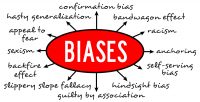Reducing L&D Costs Without Dropping Training Altogether
Learning and development (L&D) is a critical area of a business’s future, but it’s sometimes difficult to get enough of a budget to do what you want. In today’s market, employers are finding it even more difficult than usual to hire employees with the experience they need, making training even more important. So how can […]









